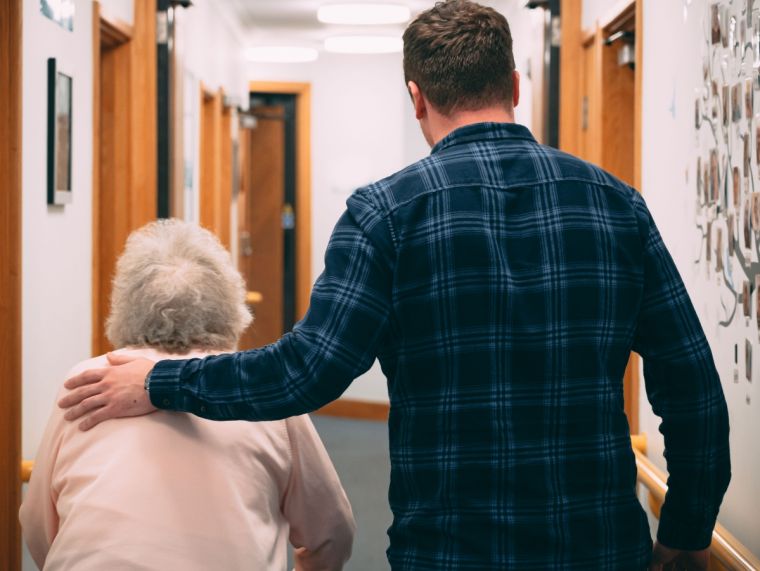Society has long prized youth and youthfulness but there is no age limit to the redeeming love of Jesus

This Easter is like no other in recent history. This Easter, as we come before the cross where Jesus poured out Himself for us, we are confronted by the utter frailty of the human condition in the face of a global pandemic.
For the first time in a long time, we are forced to have conversations about who should access stretched healthcare resources and who shouldn't. Older people are among the most at risk in these life and death decisions that no doctor or carer wants to face. But it is at the foot of the cross where we remember that there is no age limit to the redeeming love of Jesus. From the moment of conception to our final breath, we are made in the very image of God Himself, and that is all it takes to be of ultimate value, of ultimate worth.
If God puts no age limit on those He can save, no expiry date on the human condition worthy of His love and grace, neither should we. In Christian care homes up and down the country, many older people are being shown the love and care that they deserve – not because they are necessarily as productive as they were in their younger years, but because their worth is recognised in the precious blood of Jesus that makes them a part of the church family, no matter their age.
It's in Isaiah 46 that we hear the promise of God to His people demonstrating that age is no barrier to the love and redeeming power of God: "Even to your old age and grey hairs I am he, I am he who will sustain you. I have made you and I will carry you; I will sustain you and I will rescue you."
As we get older and our productivity diminishes, and perhaps our mental capacity begins to reduce, or our hearing begins to go, or our energy levels fade away, we remain utterly of value.
Society has long prized youth and youthfulness – the vitality and passion of the early decades of our lives, the business and productivity of our active years. We have come to see achievement as the thing that gives us value, as the thing which makes us important, worthy of life. So, it's a challenge to us when we are confronted by the big choices we have to make about how best to allocate severely limited resources, to choose to see value in older people as well as younger people. If our productivity gives us value, are we of any value when our productivity ceases? Or are we merely a burden to be cast off at the first available opportunity?
As Christians, we know that productivity doesn't give us value; we know that value comes exclusively from the image of God in which we are made.
In Pilgrims' Friend Society homes, we care for some incredibly frail older people, many of whom are living with dementia. Our homes – and our independent living housing schemes – are all rooted in the Christian faith, based on the biblical principle that God treasures and values His creations until our very last breath – and, of course, for eternity beyond that!
We value older people to the very last days of their life, we believe that they have value regardless of how old or frail they are, and we are doing everything we can to make sure they are continuing to live with dignity, respect, love and faith at the heart of every day.
We know from experience that there is no age and no physical or mental capacity at which praise cannot leave the lips of a person to reach the ears of God. For as long as a person can offer worship to God, they are of total value. While they can offer a word of encouragement to a carer or offer a prayer for the world outside their window, they are of total value. While the Spirit of God lives in them, they are of total value.
Let us not be distracted by the fear and anxiety that hangs in the air this Easter. This is a difficult time, there is no doubting that, but let us not be confused about the things that are the same yesterday, today and forever: God has made each one of us in His image, He has worked out His plan in sending Jesus to die for us and to rise again to offer us a resurrected life, and there is no age limit to the value of Christ in us.











